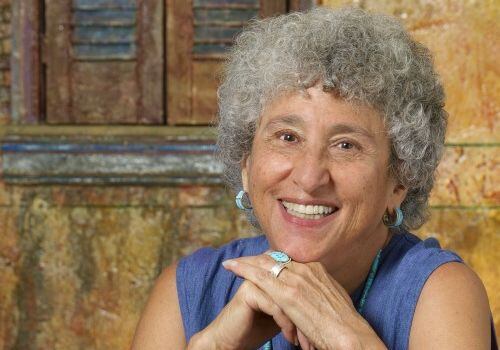AND media relations manager Ryan O'Malley was speaking to FoodNavigator-USA after advocacy group Dietitians for Professional Integrity (DFPI) released a report (click here) outlining its concerns about the influence of ‘Big Food’ on FNCE 2013, which took place in Houston, Texas, last month.
DFPI: Education materials mislead by omission
DFPI co-founder Andy Bellatti took particular issue with some of the sponsors’ educational materials, such as a Kellogg’s booklet for school administrators promoting multigrain Frosted Flakes, Cheez-Its, and Pop Tarts as examples of ‘good nutrition and simple grains’.
Similarly, a PepsiCo chart comparing sodium levels in commonly consumed snack foods “makes Frito-Lay’s chip offerings seem like the best snack choices” as they are compared with “large muffins, beef jerky, pretzels, bagels, and cheese”, said DFPI, claiming that PepsiCo “conveniently” failed to include other commonly consumed snacks such as fruit, nuts and seeds that are far lower in sodium than its chips.
DFPI also took issue with the “misguided” ban on photography on the FNCE expo floor which it claimed “fostered mistrust and suspicion”.
AND: More than 6,000 people attended FNCE; it’s to be expected that not all of them agree with every part of the four-day event
But Bellatti had not made any substantive allegations, and supplied no hard evidence that sponsors had exerted a 'vice grip' over FNCE, said O'Malley at AND.
"With more than 360 exhibitors, 250 educational sessions, 400 speakers and a program book that exceeds 220 pages, Andy has found a handful of things he dislikes. More than 6,000 people attended FNCE this year, so it’s to be expected that not all of them agree with every part of the four-day event."

As for the photo ban, AND has asked exhibitors and attendees to refrain from taking pictures on the expo floor "for many years", he claimed.
"It only recently became necessary to more strongly enforce this request when photos of exhibitors and attendees were taken and used without the subject’s permission. We will, however, continue to evaluate the photography policy."
With regard to DFPI's petition on change.org calling for AND to sever ties with corporate sponsors (which has garnered 25,000+signatures), he said: "To best evaluate the petition’s signatures, we cross-referenced the signatures against the Academy membership database.
"Only 600 signatures matched with current Academy membership, representing less than 1% of our membership. The Academy will, however, continue its work to advocate on behalf of all of our more than 75,000 members."
The RDs are selectively describing the food supply to show its worst side, and industry does exactly the same in reverse
So what do other FNCE delegates and RDs think about AND's ties with corporate sponsors such as McDonald's and PepsiCo?
One RD who asked not to be named told FoodNavigator-USA that the dietetic community had become "excessively overwrought about funding sources" given that "someone needs to pay for the special promotion of nutrition issues to the public".
But she added: "I can't say that either side is pure of intent...
"I see the dietetic community acting in a way that not consistent with the science, and industry certainly cherry picks what it promotes to the nutrition community. The RDs are selectively describing the food supply to show its worst side, and industry does exactly the same in reverse.
"AND should not succumb to the selective cries to denounce industry ties, but we need to hold the industry sponsors accountable to tell full and truthful messages to the nutrition spokespeople and beyond."
Dr Marion Nestle: Sponsorship perverts science
However, Dr Marion Nestle, Paulette Goddard professor of nutrition, food studies, and public health at New York University, said it was wishful thinking to assume that companies that make their money selling soda and chips as well as water, juice and oatmeal could provide a "full" picture.
The issue, she said, was not whether FNCE delegates were capable of distinguishing facts from sponsored spin in conference handouts.
She told us: “That’s not the right question. Most people are unaware of how such things influence their opinions. Substantial research on sponsorship by tobacco, drug, and chemical companies provides such evidence. There is not yet as much research on the effects of food industry sponsorship but the few studies that exist are completely consistent with research on other industries.”
It’s stunningly easy to design studies that accomplish these goals
Asked whether it was unfair to automatically dismiss industry-funded research and information rather than judging it on its merits, Nestle said: “In my opinion, agriculture, food, nutrition, and health professionals should dismiss industry-sponsored research out of hand, and journals should not accept industry-sponsored papers.
"There is only one reason for food companies to sponsor research—so they can use the results in their own interests.

“Sponsorship perverts science. Sponsored research is not about seeking truth or adding to public knowledge. It is about obtaining evidence to defend or sell the sponsor’s product, to undermine research that might suggest that a product is unhealthy, to head off regulation, and to allow the product to be marketed with health claims.
“It’s stunningly easy to design studies that accomplish these goals and to conduct them in ways that meet the scientific criteria of peer-reviewers.”
She added: “Peer reviewers, journal editors, and readers ought to be asking: Why did the sponsor fund this study? Was the research question designed to permit an answer that might not meet the sponsor’s goal? Was the study conducted in a way that permitted an answer against the sponsor’s interest? Sponsored studies almost always fail these tests of independence.”
Dr Jim Painter: The fact it, companies have money [for this kind of research] and the federal government does not

However, Jim Painter, RD, PhD (Professor at the School of Family and Consumer Sciences at Eastern Illinois University) who spoke at FNCE this year (click here) and serves as a consultant for the California Raisin Marketing Board, said this was not realistic.
“The fact is, companies have money [for this kind of research] and the federal government does not.”
So transparency is critical, he added. “You have to declare any potential conflicts of interest. For me personally, I am also very careful about what I work with [when it comes to industry sponsorship], things like raisins, whole foods and nuts - something I’ll give my heart and soul for.”
If PepsiCo changes its cooking oil, it’s changing the oil makeup of America
The issue of whether big food companies can be part of a problem (obesity) they have helped to create is a question that always rears its head at FNCE, he added.

While the American diet would undoubtedly be improved if shoppers only bought whole foods and prepared everything from scratch, reformulating packaged products consumed by millions of people may prove a more realistic/effective strategy, he said.
“It’s pie in the sky to think we’ll all going to buy wholefoods. The world eats at McDonald’s so if it offers more healthy choices it can be a part of the solution.
“On the one hand, I see companies that have been very active in creating the obesity epidemic like Pepsi and Coke say they are now helping to cure it and I wonder if AND should be working with them, especially when you look at what their main products are.
“But on the other hand, if PepsiCo changes its cooking oil, it’s changing the oil makeup of America.”
He added: “Are there some companies that AND/FNCE probably shouldn’t be working with? Yes, probably, but where do you draw the line?”
Click here to download the DFPI report.
Click here and here to read about the criteria underpinning AND’s corporate sponsorship program.
Read our special feature on this issue: SPECIAL FEATURE: Should AND sever its ties with ‘junk food’ corporate sponsors?
